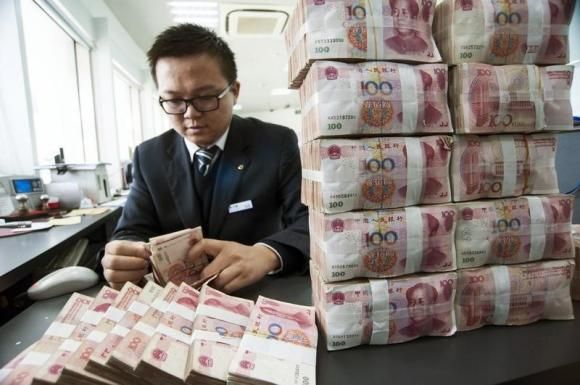(Reuters) - China is set to launch a watered down version of its long-awaited international payments system, using it only for cross-border yuan trade deals rather than also including capital-related transactions, two people with direct knowledge of the matter told Reuters on Monday.
The move would delay billions of dollars worth of transactions, including securities purchases and foreign direct investment, that would have gone through the system. In the United States, roughly $1.5 trillion goes through a similar transaction process daily.
It would be a second setback to China’s ambitious plans to offer a unified network for settling deals in yuan after it failed to get off the ground as expected last year due to technical problems. It also comes as other measures to open up China’s financial infrastructure have been dented by the recent stock market crash.
The China International Payment System (CIPS), expected to be launched later this year, will now offer at best a complementary network for settling trade-related deals in the Chinese currency to a current patchwork of Chinese clearing banks dotted around the world.
“I think ambition stood before ability,” said one of the individuals who is directly involved in the implementation of the project. “It doesn’t include a lot of things, but there is pressure for delivery.”
Neither of the sources could be identified due to compliance reasons. The People’s Bank of China declined to comment.
The official launch will be in September or October, depending on the results of tests and preparation work among a group of 20 banks, sources previously told Reuters.
The system will allow large international companies doing business with China to settle payments faster by including additional features such as letting CIPS overlap with European and U.S. working hours.
While CIPS is unlikely to pose a threat to SWIFT, it will gradually spell the end of the current system of correspondent Chinese clearing banks in offshore yuan hubs. But it is a setback for Shanghai’s push to upstage Hong Kong as an offshore yuan hub.
“CIPS is an important infrastructure backing Shanghai as a global renminbi settlement and clearing centre by 2020,” said Raymond Yeung, economist at ANZ in Hong Kong. “A delay or downscaling may slow the progress towards this vision.”
YUAN BOOSTER
CIPS, which authorities hope will be a global payments superhighway for the yuan, was originally designed to replace a patchwork of networks that make processing payments in yuan, or renminbi, more cumbersome.
Modelled along the lines of the privately-owned CHIPS system supporting the U.S. dollar, China’s payments network was set to boost the yuan as an international currency for settling trade.
The yuan has become the most used currency in Asia Pacific for payments between China and Hong Kong after ranking just fifth as recently as 2012, global transaction services organisation SWIFT said in May.
Daily yuan trading volumes have more than trebled since 2010 to $120 billion, the ninth highest, according to a Bank for International Settlements report in 2013.
For China’s central bank, which has pushed for the creation of CIPS since 2012, a muted launch adds little material value to the existing system of settling trade in yuan.
Bankers say the current system of using Bank of China Hong Kong in the former British colony or ICBCin London only adds another layer for settling yuan-related deals, while the CIPS platform allows shortlisted banks to directly access the central bank-run China National Advanced Payment System, or CNAPS.
The CIPS launch will enable companies outside China to clear yuan transactions with their Chinese counterparts directly, reducing the number of stages a payment has to go through.
The use of yuan to settle trade with China has ballooned since Beijing started actively pursuing its yuan internationalization strategy in 2009. Almost 30 percent of China’s global trade is now settled in yuan.
(Additional reporting by Gui Qing Koh in BEIJING)
